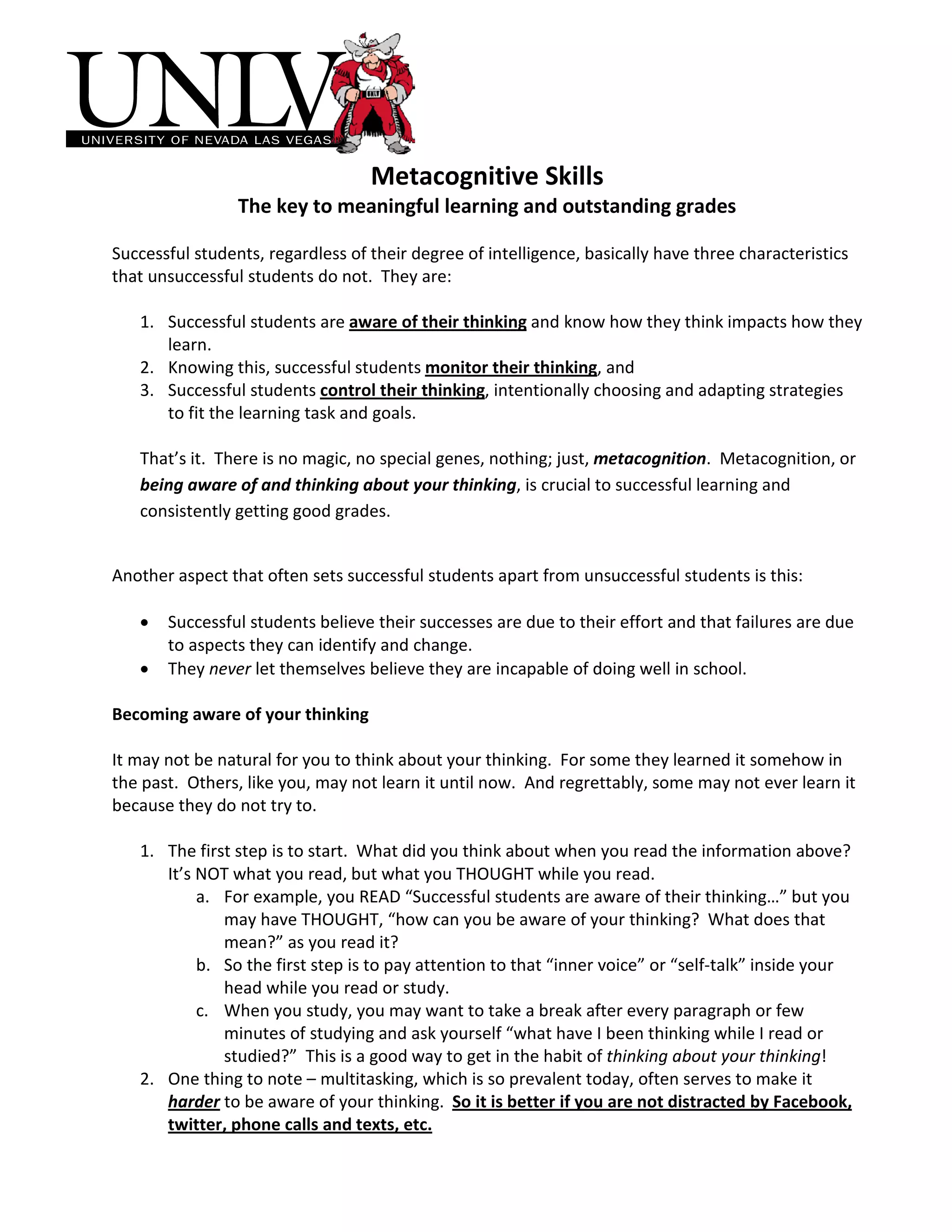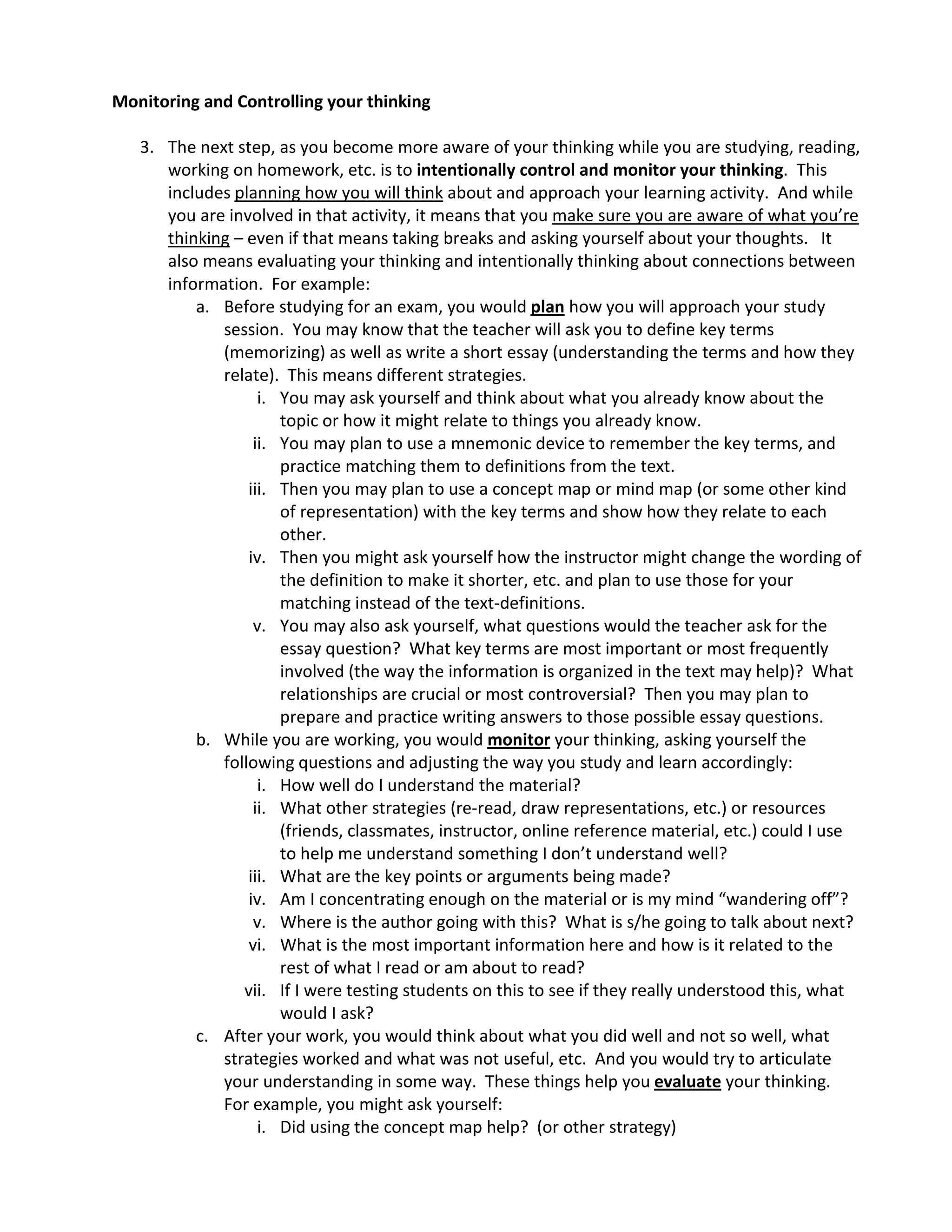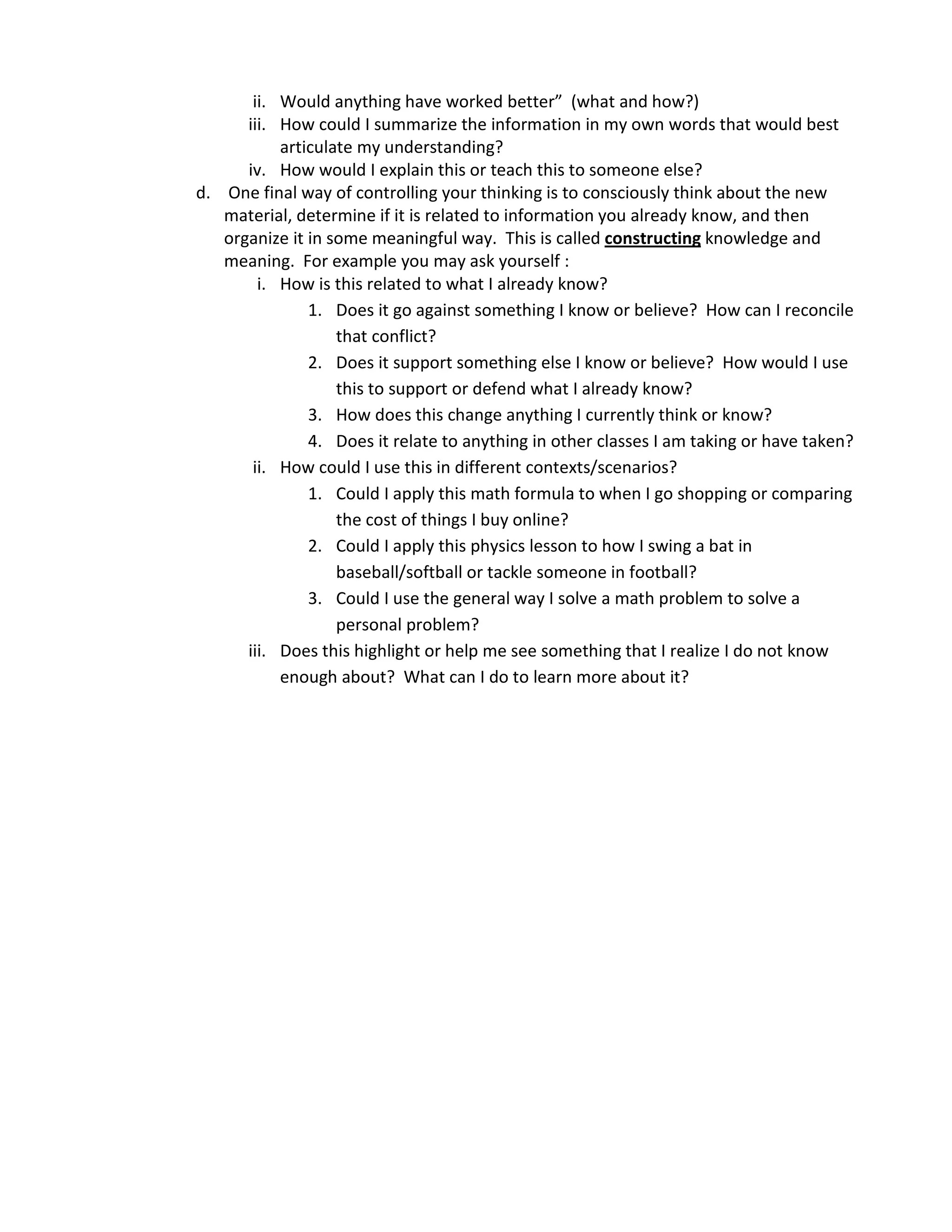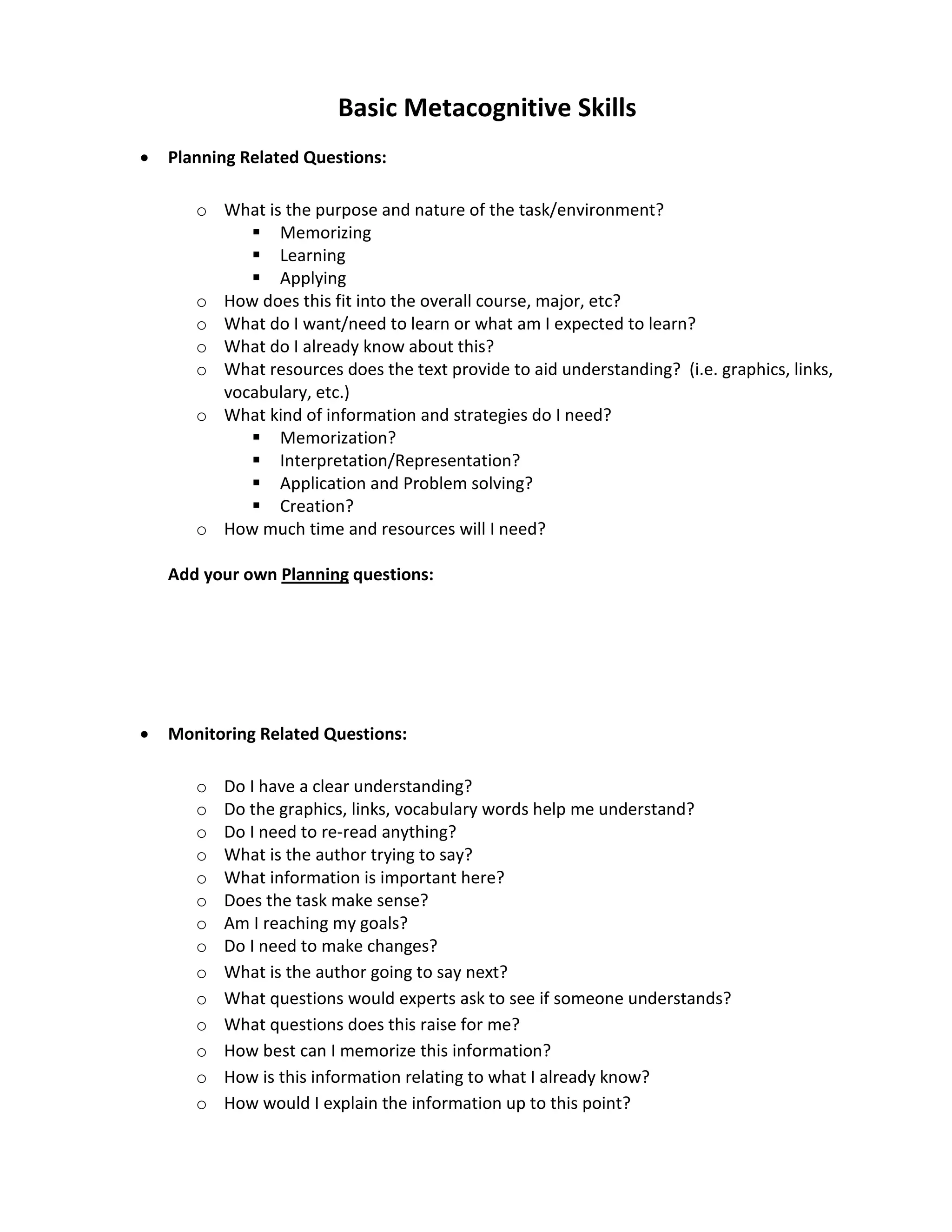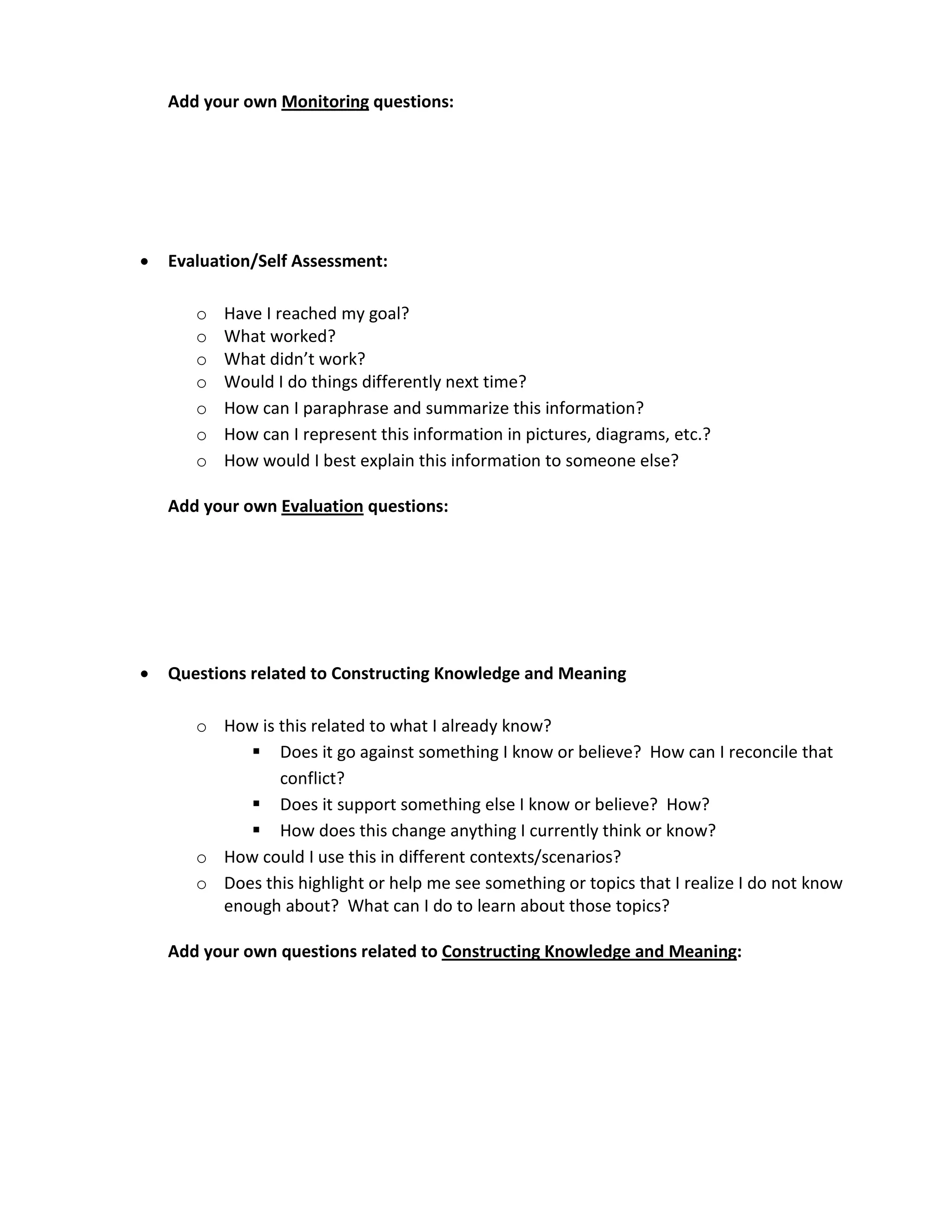Metacognitive skills are essential for meaningful learning and achieving good grades, characterized by awareness, monitoring, and control of one's thinking. Successful students believe their achievements stem from effort and view failures as opportunities for improvement. Developing metacognitive abilities involves planning, monitoring, evaluating, and constructing knowledge, alongside avoiding distractions to enhance focus and learning effectiveness.
